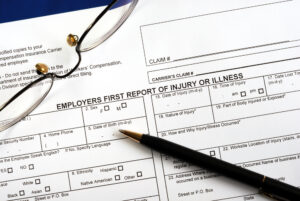
With hundreds of millions of confirmed cases and nearly three million deaths, COVID-19 has affected our lives and worldwide economy in irreparable ways. But there has been a change no one predicted before the pandemic: a sharp increase in remote workers and an increase in worker morale as a result. According to Pew Research Center, 71% of people who say they can mainly do their job from home are working remotely, compared to 20% before the pandemic started. More than half of employees hope to continue working from home, even after it’s safe to return to the office. And those surveyed by Pew said they find it easier to work from home and that it’s more motivating than being in a traditional workplace setting. But what happens if an employee is injured while working from home? Florida’s workers’ compensation laws provide some answers to this complicated issue.
Working from Home During COVID-19
With employees preferring to work from home and companies realizing that remote work may cut costs, some major corporations are offering their employees the ability to work from home permanently. Florida is the fourth most popular state for remote workers, with 6.2 percent of the state workforce teleworking. This switch to teleworking is likely to please both workers and their employers, but how will it affect Florida workers’ comp claims? Injuries caused working in-person at a physical workplace may be documented by cameras or coworkers who witness the incident. If an injury happens while working from home, it’s usually more difficult to prove that the employer bears the brunt of responsibility.
To qualify for a successful workers’ compensation claim, an employee has to show that the injury happened during the “course and scope of employment” and won’t qualify if you’re doing something for your personal benefit. One recent case heard by the Florida 1st District Court of Appeal illustrates the complications involved.
In 2016, Tammitha Valcourt-Williams, an insurance claims adjuster, tripped over her dog while getting a cup of coffee. She fell and injured her hip, knee, and shoulder and filed a workers’ compensation claim against her employer Sedgwick CMS. Sedgwick denied the claim, but a judge ruled that Williams’s claim was compensable. When the case went before the appeals court, though, it was decided in Sedgwick’s favor. In the official Sedgwick CMS v. Valcourt-Williams ruling, the court elaborated on its decision.
Here, the relevant risk was that the claimant might trip over her dog while reaching for a coffee cup in her kitchen. That risk exists whether the claimant is at home working or whether she is at home not working. It existed before Valcourt-Williams took her job, and it will exist after her employment ends (so long as she maintains a home with a dog). Because the risk did not arise out of the employment, we must reverse.
Proving that an injury is caused within the scope of your employment when you’re working outside of the office can be challenging, although not impossible.
COVID-19 Workers’ Compensation Claims
It’s also important to look at workers who don’t have the privilege of working from home. Even though millions are teleworking, it’s an option that many lower-income workers don’t have. Those who work in retail, restaurants, janitorial services, and similar professions are often not offered the opportunity to telework, making them more susceptible to face-to-face contact that may lead to contracting the novel coronavirus.
Receiving workers’ compensation after being diagnosed with COVID-19 while working in person can be difficult, let alone contracting it while working from home. Florida now requires workers who test positive for COVID-19 to provide an affidavit from a doctor stating that they were infected due to gross negligence on the part of their employer, which may make it harder for COVID patients exposed at work to seek compensation.
If you’re a work-from-home employee and are injured while working, you may face pushback on your workers’ compensation claim from your employer. Working with an experienced attorney can help you navigate Florida’s workers’ comp system successfully. The Scott R. Marshall law firm can help you receive the benefits you need. For questions or more information, call us at 727-772-5900 or contact us online.

At the Scott R. Marshall law firm, we represent people around Florida in claims arising out of workers’ compensation, personal injury and wrongful death. Our firm believes the best way to represent clients is to take the time to get to know them. We deal directly with our clients on all legal issues and provide professional, personal and aggressive representation.















Comments for this article are closed.